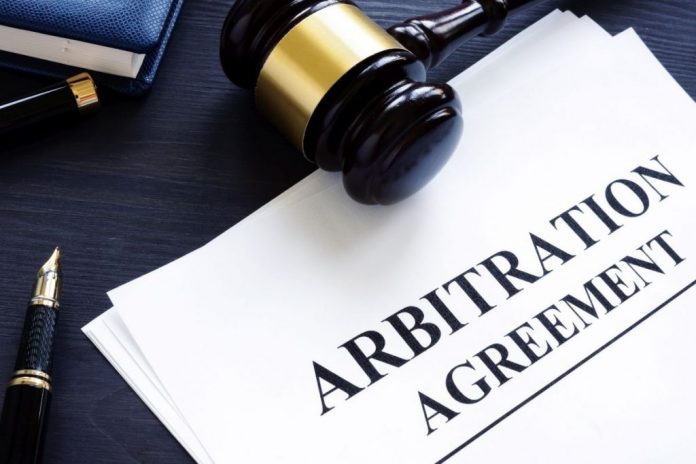This article has been written by Dahlia Chadha pursuing the Certificate Course in Arbitration: Strategy, Procedure and Drafting from LawSikho.
Table of Contents
Introduction
Conflicts of interest are a part of human life. In human affairs, we cannot avoid disputes but can resolve them. Alternative Dispute Resolution or ADR is getting popular these days as it not only includes arbitration but also other dispute resolution mechanisms such as mediation, conciliation, negotiation, and Lok Adalat. This concept of dispute resolution mechanism was not only introduced to reduce the burden of the courts but also to resolve the issues more effectively. It promotes the idea of “access to justice” for all. But the proceedings of arbitration have become more complex and expensive due to several reasons, wherein ‘Multiplicity of arbitration agreements is one of the major issues. This issue of multiple proceedings has defeated the main purpose of a speedy resolution. The multiplicity of agreements plays the role of an evil that is the chief reason for failing the purpose of the arbitration. Multiplicity has always been an obstacle in adjudicating and delivering judgment.
Relevant case law
In the past, even the Supreme Court has expressed disappointment in arbitration becoming a time-consuming and highly expensive process. Multiple agreements of arbitration are playing the role of an obstacle in serving justice. Parties tend to refer the dispute to the arbitration courts in the various stages. It increases the efforts of the parties, the amount spent on the proceedings and it consumes a lot of time. To address the issue of the Multiplicity, Hon’ble Delhi High Court in the famous case, Gammon India Ltd. v. NHAI has dealt with the aspect of the multiplicity of agreements, multiple proceedings, multiple arguments and multiple awards which will lead to confusion and contradiction. Further the Court added that “Arbitral proceeding is not strictly governed by Code of Civil Procedure, 1908 (CPC). Court concluded it as “it is possible for the parties to invoke multiple arbitration in one contract, unlike civil suits being filed under CPC.
Moreover, the Court also observed and added in the conclusion that in the construction of a contract, disputes related to breach, delay, termination etc are the major core of the disputes. In such cases, it is possible that multiple proceedings are adjudicating at different tribunals at the same time. Court held that these types of situations should be avoided.
Multiple arbitration agreements are the reason for the confusion which usually arises between –
- Same parties under the same agreements;
- Same parties under different sets of agreements;
- Similar agreements in common entities where another entity is common.
Courts in India have provided guidance from time to time on how to avoid multiple proceedings in related issues. As per the administration of justice, once the award has been passed by the arbitrator, the dispute has been settled between the parties. The Division Bench of Delhi High Court in the year 1985 held that “ Once an award by an arbitrator has been passed the dispute between the parties is said to be settled.”
To deal with the first two above-mentioned issues, Delhi High Court provided a solution that the arbitration clause should be drafted in a way that all the claims are referred together to one sole arbitrator/ arbitration tribunal. In addition to this, the Court said that any further issue should be referred to the same tribunal for resolution. Further, the court also clarified that the tribunal may pronounce separate awards with respect to multiple references to avoid contradictory findings. In the case of ‘Similar agreements in common entities where another entity is common’, the Court confirmed that the opportunity to resolve the issue should be granted to the same tribunal. In the case where such a thing is not possible, then the challenges to the award rendered, if pending in the same court, could be heard together. 
Res Judicata in arbitration proceedings
The Hon’ble Court has addressed the scenario in the relevant case titles as Dolphin Drilling Ltd. vs. ONGC, in case a dispute has arisen and arbitration is needed to be invoked, the party invoking the arbitration has to include all the claims that have already arisen on the date of invocation of the arbitration proceedings should be included about arbitration. It has been guided by the reason that it is against public order to allow someone to raise claims as per convenience. According to Order II Rule 2 of CPC, if any dispute was not raised, no separate reference could be brought for such dispute. As per Order II Rule 2 of the CPC, every suit must include the whole claim that a party is entitled to. And when the part of the claim is relinquished, the same cannot be sued thereafter.
In support of this, the principle of Res Judicata has been applied in the arbitration proceedings.
The basic meaning of the word Res Judicata is that the issue has previously been taken into consideration and now cannot be determined again. The objective of this aforesaid principle is to consider all the issues together and not litigate upon the same issues repeatedly. The Delhi High Court also felt that under any provision of the Arbitration and Conciliation Act, 1996, specific disclosures should be made by the parties which shall include a number of the arbitration reference, arbitral tribunals, or pending proceedings to collectively resolve the issue in one go.
The Calcutta High Court, based on the principle of Res Judicata, refused to allow the plaintiff to claim for damages as not claimed in previous concerning proceedings.
While ADR continues to be popular, it has loopholes that include multiple arbitration agreements arising out of one parent contract that needs to be rectified. We need to make laws that expedite the process and make it affordable, which is the essence of Arbitration. It has been observed that most studies about complex arbitration deal with multiple arbitrations while in parallel proceedings this doesn’t happen. To resolve this issue of multiple arbitration agreements, it was directed by the Delhi High Court in the case of Gammon – Atlanta VS. National Authority of India, to disclose at the time of filing petition under Section 11 or Section 34 of Arbitration and Conciliation Act, 1996 if there are any pending or adjudicated proceedings in respect of the same contract.
The arbitration clause plays a vital role in the contract and it should be drafted in a manner that all the issues of disputes should be covered together. Arbitration is a speedy proceeding but adjudication of different proceedings out of multiple sub agreements of one main contract delays the process and ADR and makes it lose its worth. In any petition seeking appointment of arbitrator or constitution of a tribunal to invoke proceedings, parties are under obligation to disclose if any other tribunal has been constituted.
Important points that need to be taken care of
- Multiple arbitration proceedings are acceptable but parties cannot raise claims at their convenience.
- The party invoking proceedings should disclose the material information that is concerning the same agreements before the courts. This will help in the administration of justice and also prevents contradictory awards.
- A well-drafted clause can help the parties to go a long way without a multiplicity of agreements.
Conclusion
Arbitration being a part of ADR is a concept that was introduced not only to reduce the burden of the courts but to adjudicate the disputes in a speedy and cost-effective manner. Arbitration is a mutual agreement between the parties to resolve their disputes through this mode. But, nowadays, Arbitration has lost its primary function because of the multiple proceedings adjudicated by the several tribunals arising out of one single parent agreement. It is leading to contradictory findings and awards. Apart from this, due to multiple proceedings, it has become a time-consuming and a costly mode of resolving the disputes. Any issue arising out of the parent contract creates a huddle in the subcontracts as well which ultimately leads to multiple proceedings of arbitration under different arbitral tribunals. This issue is lowering the esteem of Arbitration. Parties bringing the dispute to Arbitration should bear in mind that they must disclose the pending proceedings to the court. Litigants can invoke multiple arbitration proceedings but not as per their convenience.
An arbitration clause should be drafted in a way that it can go a long way and should include all the matters in a single proceeding. Arbitration should remain an alternative to litigation and must stay true to its promise of being an efficient Alternate Dispute Resolution mechanism.
References
- https://www.mondaq.com/india/trials-appeals-compensation/968910/solution-to-multiplicity-of-arbitral-tribunals.
- https://www.lexology.com/library/detail.aspx?g=4a606b71-0a27-4e41-9c95-d65da74c16e4.
Students of Lawsikho courses regularly produce writing assignments and work on practical exercises as a part of their coursework and develop themselves in real-life practical skills.
LawSikho has created a telegram group for exchanging legal knowledge, referrals, and various opportunities. You can click on this link and join:
 Serato DJ Crack 2025Serato DJ PRO Crack
Serato DJ Crack 2025Serato DJ PRO Crack










 Allow notifications
Allow notifications


